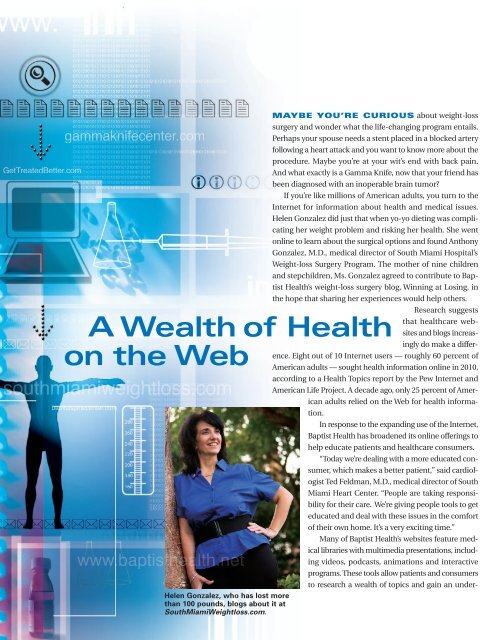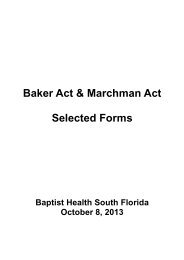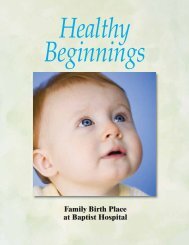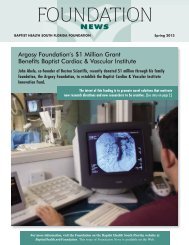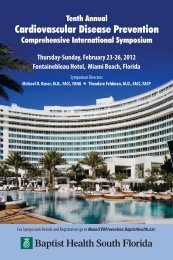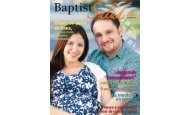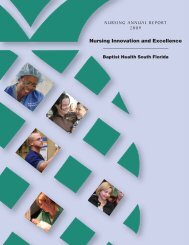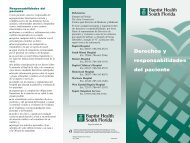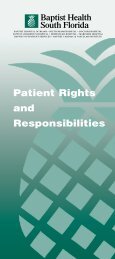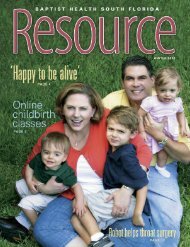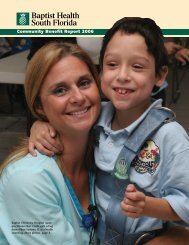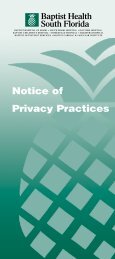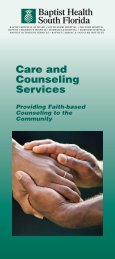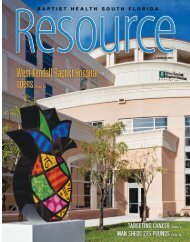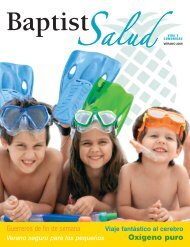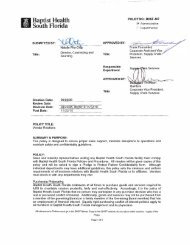SPRING 2011 - Baptist Health South Florida
SPRING 2011 - Baptist Health South Florida
SPRING 2011 - Baptist Health South Florida
You also want an ePaper? Increase the reach of your titles
YUMPU automatically turns print PDFs into web optimized ePapers that Google loves.
MAYBE YOU’RE CURIOUS about weight-loss<br />
surgery and wonder what the life-changing program entails.<br />
Perhaps your spouse needs a stent placed in a blocked artery<br />
following a heart attack and you want to know more about the<br />
procedure. Maybe you’re at your wit’s end with back pain.<br />
And what exactly is a Gamma Knife, now that your friend has<br />
been diagnosed with an inoperable brain tumor?<br />
If you’re like millions of American adults, you turn to the<br />
Internet for information about health and medical issues.<br />
Helen Gonzalez did just that when yo-yo dieting was complicating<br />
her weight problem and risking her health. She went<br />
online to learn about the surgical options and found Anthony<br />
Gonzalez, M.D., medical director of <strong>South</strong> Miami Hospital’s<br />
Weight-loss Surgery Program. The mother of nine children<br />
and stepchildren, Ms. Gonzalez agreed to contribute to <strong>Baptist</strong><br />
<strong>Health</strong>’s weight-loss surgery blog, Winning at Losing, in<br />
the hope that sharing her experiences would help others.<br />
Research suggests<br />
that healthcare websites<br />
and blogs increasingly<br />
do make a difference.<br />
Eight out of 10 Internet users — roughly 60 percent of<br />
American adults — sought health information online in 2010,<br />
according to a <strong>Health</strong> Topics report by the Pew Internet and<br />
American Life Project. A decade ago, only 25 percent of American<br />
adults relied on the Web for health information.<br />
In response to the expanding use of the Internet,<br />
<strong>Baptist</strong> <strong>Health</strong> has broadened its online offerings to<br />
help educate patients and healthcare consumers.<br />
“Today we’re dealing with a more educated consumer,<br />
which makes a better patient,” said cardiologist<br />
Ted Feldman, M.D., medical director of <strong>South</strong><br />
Miami Heart Center. “People are taking responsibility<br />
for their care. We’re giving people tools to get<br />
educated and deal with these issues in the comfort<br />
of their own home. It’s a very exciting time.”<br />
Many of <strong>Baptist</strong> <strong>Health</strong>’s websites feature medical<br />
libraries with multimedia presentations, including<br />
videos, podcasts, animations and interactive<br />
programs. These tools allow patients and consumers<br />
to research a wealth of topics and gain an under-<br />
Helen Gonzalez, who has lost more<br />
than 100 pounds, blogs about it at<br />
<strong>South</strong>MiamiWeightloss.com.<br />
A Wealth of <strong>Health</strong><br />
on the Web


